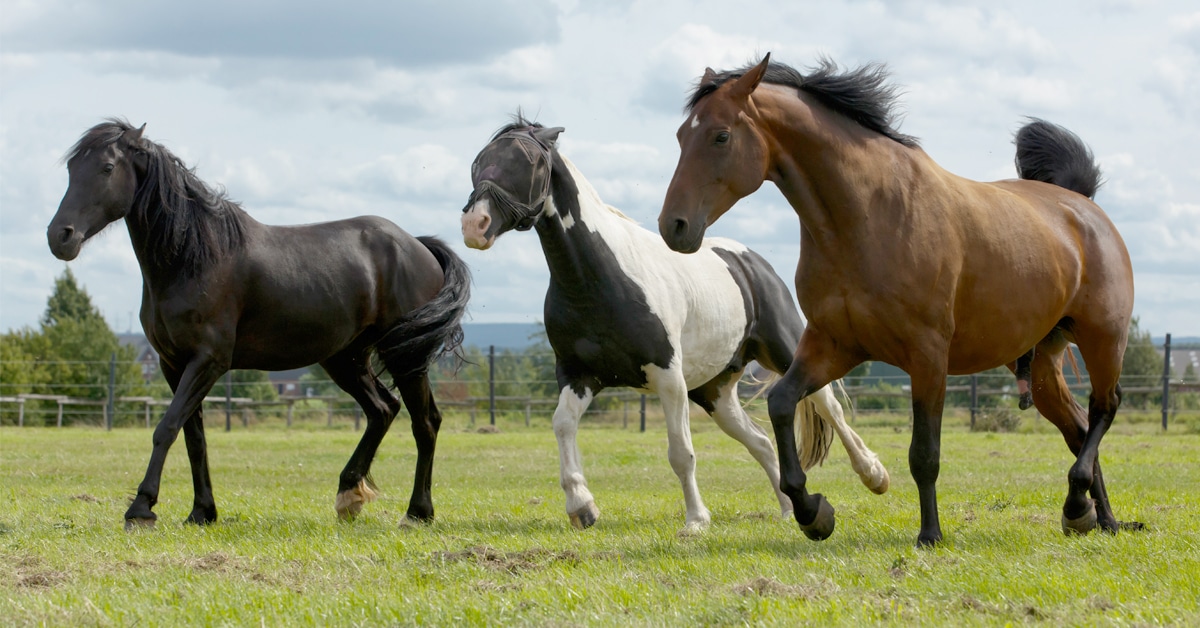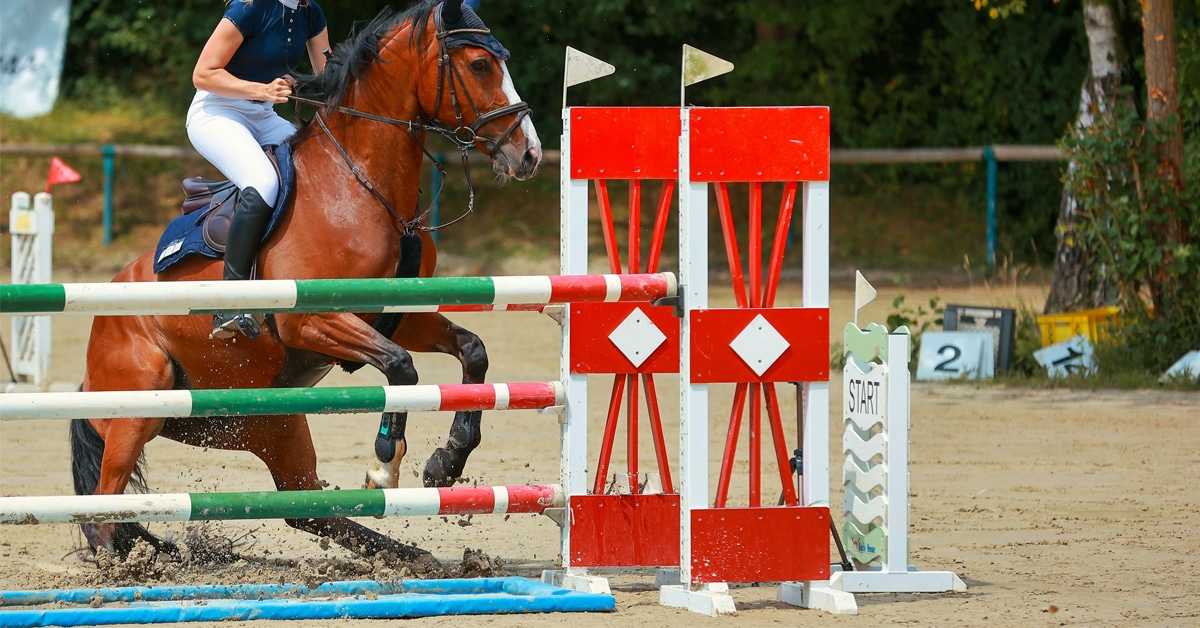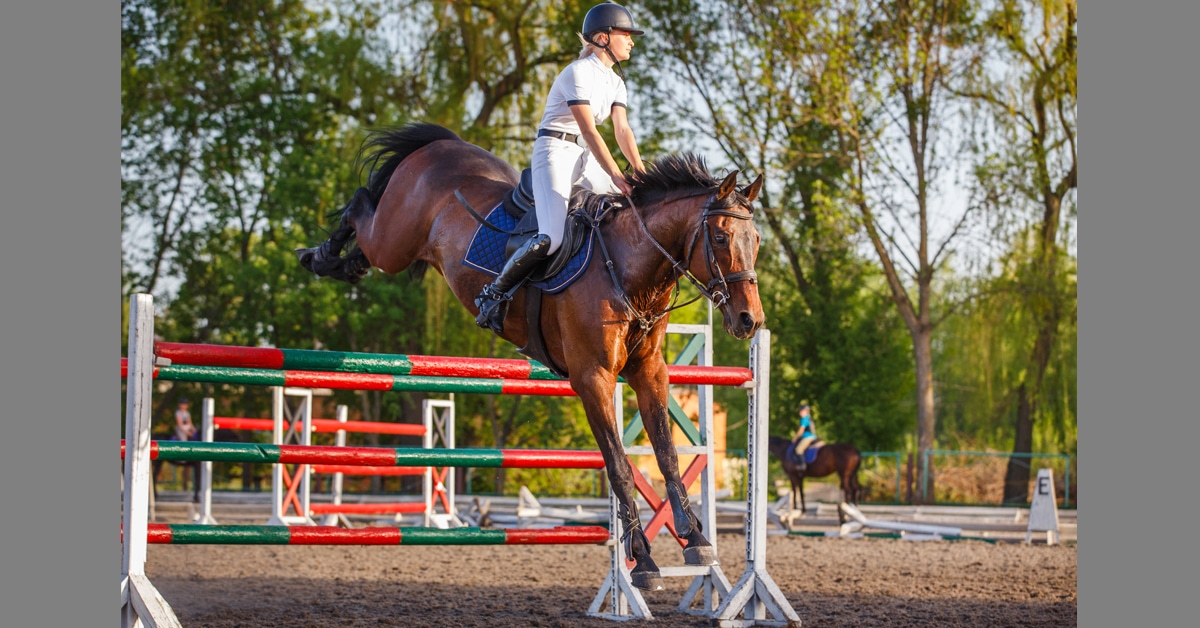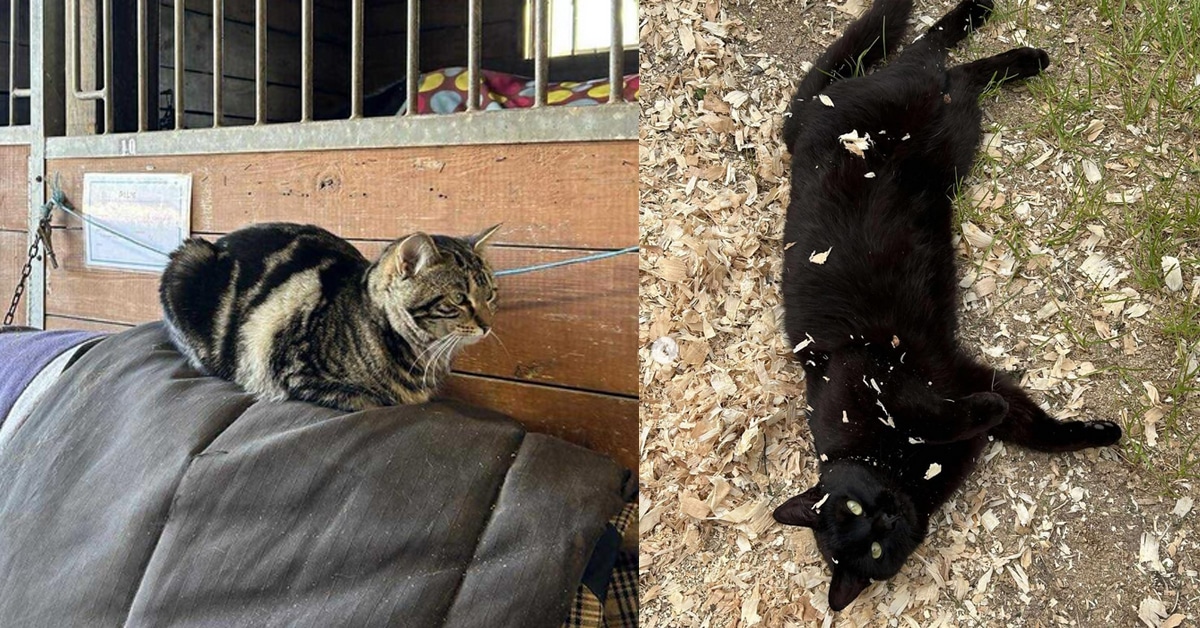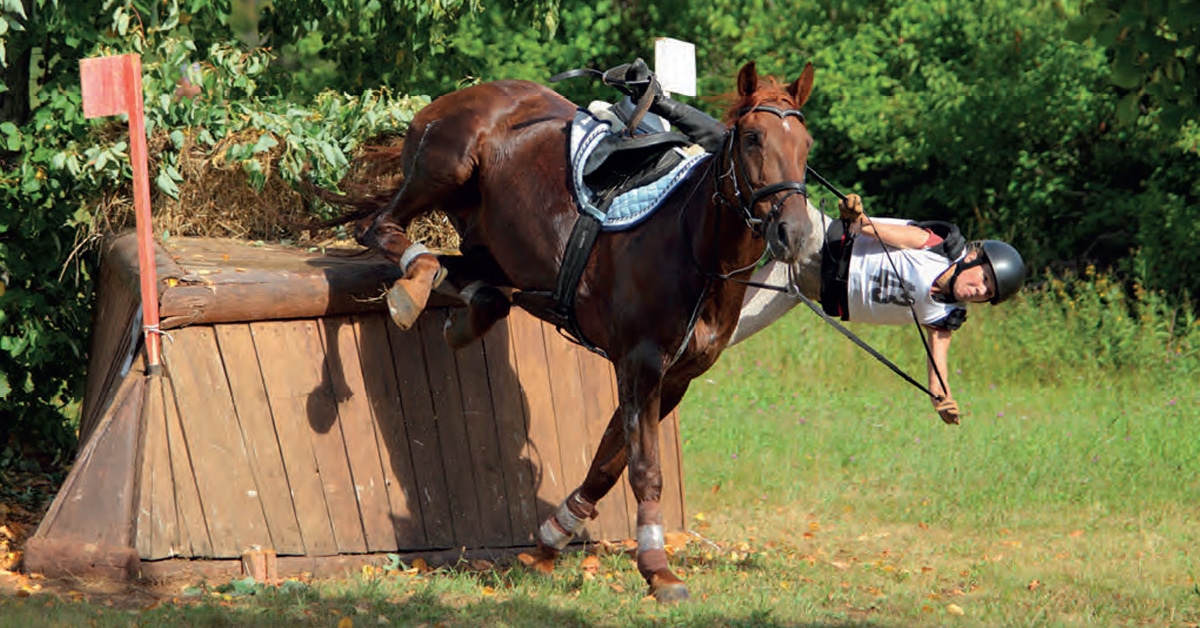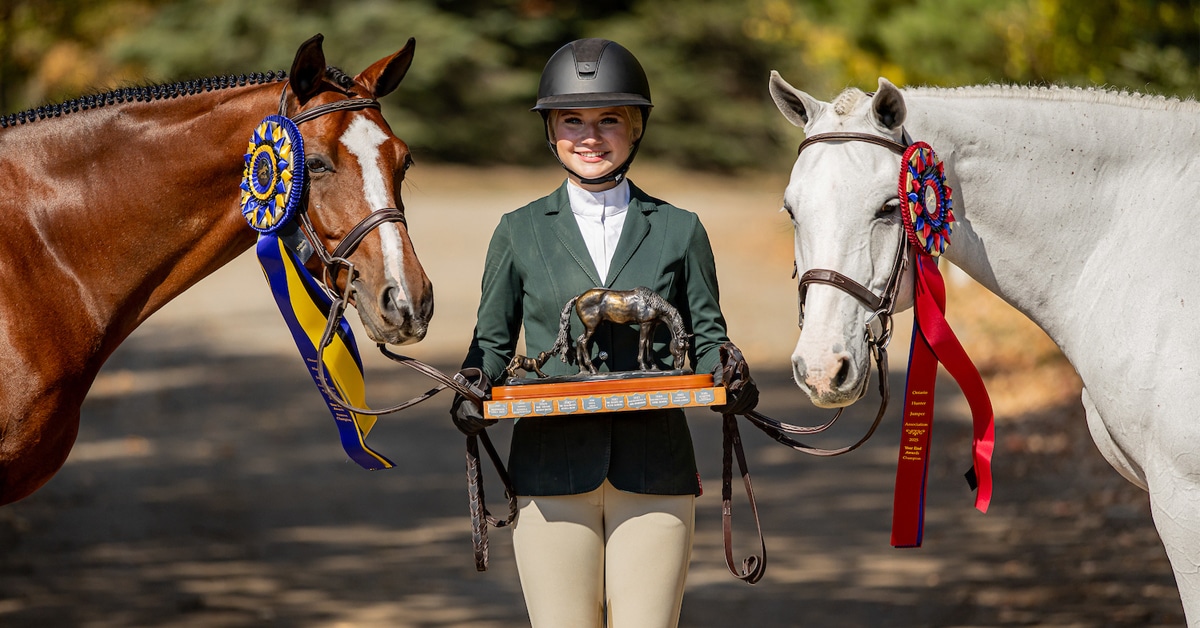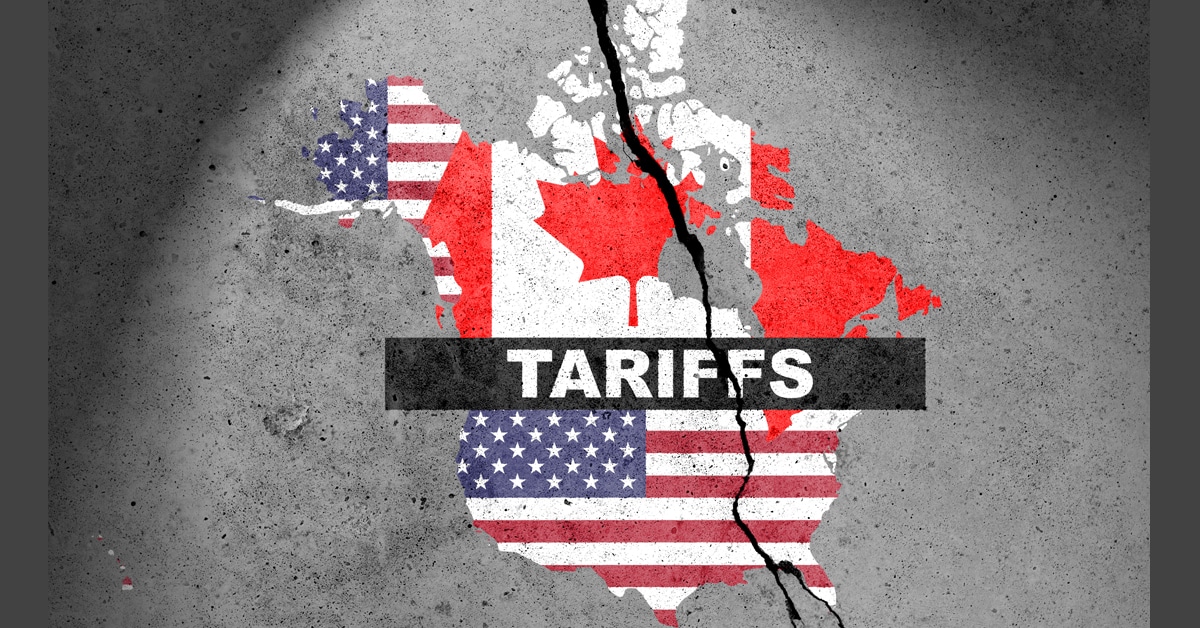A year ago last fall, I travelled to Ottawa to visit my two former show horses whom I hadn’t seen for several years, now retired to a princely life of light hacking and much adulation. When I approached them in their field and called their names, they marched straight toward me, bypassed their current owner, and each planted a forehead firmly on my chest.
As I wiped away my tears and concluded that this old scientist was definitely going soft, the encounter later triggered an interest in what we really know about horses’ memory for, and attachment to, their humans.
We know that horses remember things (both good and, unfortunately, bad) for a very long time, with seemingly little memory decay. For example, horses trained to perform a particular task or apply rules of concepts and categories to obtain a food reward, retain this learning up to 10 years later and can apply it to novel situations, with no practice in between (Hangi, 2009; Valenchon & Lansade, 2013).
Horses also excel in “social cognition” – understanding and recognizing who is who, and their relative rank and relationship in the herd – a critical skill for a social species, as it enables them to adapt their behaviour to whatever action may be required depending on your company. Moreover, horses demonstrate accurate “cross-modal recognition” – being able to use one sense to recognize a specific individual through another sense (e.g. to associate a neigh with the visual image of a specific horse) (Wathan et al., 2016).
These skills appear to also operate across species lines in horse-to-human interactions. Leanne Proops and Karen McComb found that horses faced with two familiar handlers looked to the appropriate handler when an audio recording of that handler’s voice called the horse’s name. Horses can also differentiate between the voices of familiar and unfamiliar humans without the advantage of seeing or smelling them, and can identify the same people from sight and smell, without hearing their voices (Lampe & Andre, 2012). Pretty sophisticated stuff.
And, like Santa, they remember who was naughty or nice, recalling interactions they have had with humans up to a year previously. In 2018 Lansade and colleagues found that horses remembered whether they had been groomed sensitively (on body parts that they appreciated), or with a standard grooming procedure (less enthusiastically received). Horses were more likely to approach the “sensitive groomers” and display more positive behaviours, and showed more avoidance of the “standard groomers” when meeting them one year later.
Notably, horses seem to have an extraordinary skill for remembering faces, and to understand the representation of a face in a photograph, where recognition is not possible through voice or smell or touch. Dogs, in contrast, struggle with associating their human in a two-dimensional photograph.
Proops’ 2018 research group found that horses presented with a photograph of a person who was either angry or happy responded appropriately (with corresponding approach or avoidance) when confronted several hours later with the same actual person exhibiting a neutral expression. They did not do so with a different mismatched person. In a recent similar study, horses more often chose to touch the photographed face of their human, rather than a novel face, although they were rewarded for touching either face. More remarkably, they made this choice even if they had not seen this significant person for six months (Lansade et al., 2020).
The authors suggest that “some non-human animals can effectively eavesdrop on the emotional state cues that humans reveal on a moment-to-moment basis” and presumably store this information to guide their behaviours several months later. Lansade suggests that possibly the thousands of years that horses have been domesticated, specifically to have a unique relationship with humans, may account for why this uncanny facial recognition skill evolved.
Not only is the research robust that horses will remember us, it is also the case that they probably like us and possibly miss us when we are not there.
Not only is the research robust that horses will remember us, it is also the case that they probably like us and possibly miss us when we are not there. Horses, as herd animals, are evolutionarily designed to be social, to form bonds with herdmates, and to form particular attachments to specific others. All of this bonding makes for good herd stability, keeps everyone invested in sticking together, and thus having a better chance of surviving and passing on that sticking behaviour to their offspring.
Enter humans, who generally believe horses will be safer if housed individually, and all those hard-wired socializing tendencies get directed to the next best alternative – namely us.
So I don’t think it is overly sentimental to conclude that my retired horses did recognize me, were probably happy to see me, and after an appropriate snuggle, also happy to walk off and eat more grass, as if to say, “In case you were thinking of taking us back to the west coast …. we are quite fine here, thanks.”
The Latest
